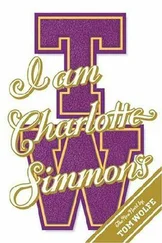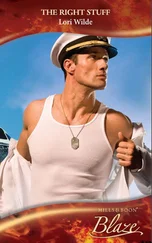Tom Wolfe - The Right Stuff
Здесь есть возможность читать онлайн «Tom Wolfe - The Right Stuff» весь текст электронной книги совершенно бесплатно (целиком полную версию без сокращений). В некоторых случаях можно слушать аудио, скачать через торрент в формате fb2 и присутствует краткое содержание. Жанр: Современная проза, на английском языке. Описание произведения, (предисловие) а так же отзывы посетителей доступны на портале библиотеки ЛибКат.
- Название:The Right Stuff
- Автор:
- Жанр:
- Год:неизвестен
- ISBN:нет данных
- Рейтинг книги:3 / 5. Голосов: 1
-
Избранное:Добавить в избранное
- Отзывы:
-
Ваша оценка:
- 60
- 1
- 2
- 3
- 4
- 5
The Right Stuff: краткое содержание, описание и аннотация
Предлагаем к чтению аннотацию, описание, краткое содержание или предисловие (зависит от того, что написал сам автор книги «The Right Stuff»). Если вы не нашли необходимую информацию о книге — напишите в комментариях, мы постараемся отыскать её.
The Right Stuff — читать онлайн бесплатно полную книгу (весь текст) целиком
Ниже представлен текст книги, разбитый по страницам. Система сохранения места последней прочитанной страницы, позволяет с удобством читать онлайн бесплатно книгу «The Right Stuff», без необходимости каждый раз заново искать на чём Вы остановились. Поставьте закладку, и сможете в любой момент перейти на страницу, на которой закончили чтение.
Интервал:
Закладка:
Conrad had just requalified for night carrier landings, for "all-weather carrier operations," meaning that he was now fully qualified for Navy air combat, when he received his invitation to apply for astronaut. The fact that there was nothing in the role of astronaut that would require one-tenth the piloting skill of night carrier landings did not deter Conrad, Lovell, or anyone else for a second this time around. This time Conrad went through the selection process like Lt. Straight Arrow. As before, there were thirty-odd finalists. They did not have to go through the Lovelace Clinic or the Wright-Patterson Aeromedical Center, however. Instead, they were sent to Brooks Air Force Base in San Antonio, the Air Force's medical center, for a set of physicals that were time-consuming but on the whole conventional. After five Mercury flights it was obvious that no extraordinary physical hardiness was required for the job.
For the last phase of the testing they took you straight to Olympus, which was now Houston. Part of the testing was a formal interview, across a table, with NASA engineers, plus Deke Slayton, John Glenn, and Al Shepard, concerning technical matters. But part of it seemed to be social. You were expected to go to a cocktail party and a dinner in a private dining room in the Rice Hotel in Houston, with the Mercury astronauts in attendance. Al Shepard was there for a while, and Gus Grissom, Scott Carpenter… and here was Wally. You kept your brain dialed up in all sectors, trying to strike the perfect middle ground between being a good righteous beer-call buddy and showing a good sober respect for the eminence of those already in the club. Maybe I better hold it down to just one drink . It was like a rush party in a fraternity you desperately wanted to belong to.
Naturally Wally talked to Conrad and Jim Lovell as if he were the same old Wally, comrade-in-arms, good old Wally of Group 20. Nevertheless, the difference in their ranks existed in that room like a ray of light which beamed straight upon Walter Schirra, outstandingly successful single-combat warrior; for there were now the seven Mercury astronauts up there at the apex… and all the rest of the pilots in America far below.
Not that the Original Seven's national eminence altered the true and secret nature of things, however. The self-esteem of the fighter jock knew no limits, and the members of Group II were no exceptions to this rule. As soon as they were selected, the boys began looking around and comparing themselves—the Next Nine—with the Original Seven. Here was Neil Armstrong, who had flown the X-15. (What Mercury astronaut had done anything like that?) Here was John Young, who held two world speed-to-climb records. (What Mercury astronaut, other than Glenn, could claim any such distinction?) Here were Frank Borman, Tom Stafford, and Jim McDivitt, who had been flight test instructors at Edwards. (What Mercury astronaut had ever qualified for that, except for Slayton?) The Next Nine were really rolling now. The Original Seven were chosen to withstand stress, period. Look at Carpenter! Look at Cooper! Oh, the Next Nine felt very good about themselves. Nevertheless, the exalted status of the Original Seven was a fact. Once the initial euphoria of being chosen as an astronaut had subsided, Conrad and the others realized that now, for all their righteous stuff, they occupied a somewhat humiliating position in the corps of astronauts. They were like plebes, rookies, fraternity pledges. Gus Grissom had a nice grim ingratiating gruff gus way of telling them—if their paths had to cross here and there—not to get big ideas, not to go around calling themselves astronauts . "You're not an astronaut," he would say, "you're a trainee. You're not an astronaut until you go up." He said it without a trace of a smile. The Next Nine spent their time going to classes, like nine freshmen, like nine primary flight training candidates at Pensacola, which was bad enough, and doing scutwork for the Holy Seven, which was worse.
That was how Conrad had ended up being John Glenn's go-fer and carrying his bags. It could get cold as hell here on Olympus. There were levels upon levels, even here at the top. At the very apex there was John Glenn, and there were others among the Original Seven themselves who could not get over that fact. At the very first press conference, the one introducing the Next Nine to the public, the Original Seven were on hand, and Shorty Powers happened to introduce them in the reverse order of their flights. When he got to Shepard, he said: "And finally, this is Alan Shepard, the man who's been saying for years, 'But I was first!'" Well, that just cracked the place up. Everyone was laughing, with the single and obvious exception of Smilin' Al. He didn't even move a lip. If slow burns gave off needle rays, Shorty Powers would have had two small green holes through his frontal lobes. And you realized all at once that after Glenn's great orbital triumph Shepard—the prime pilot, the first American in space—must have felt like a forgotten man. Nobody ranked with Glenn, however, not even Webb, the administrator of NASA.
One day Glenn dropped by Webb's office in Washington and informed him that there was going to be a change in his personal agenda. He was going to make no more trips for NASA at the request of this or that congressman or senator. He was no longer going to fly halfway across the country, nor would he walk across the street, to stand on a platform to please some congressman who was looking for votes or whatever else. Glenn didn't put it as a request. He was letting Webb know how it was going to be from now on. He was just laying down the law. There was no way for Webb to take it except as a direct contradiction of his authority. Webb answered in a reasonable, if somewhat aroused, manner. Now, listen, John, we don't send you anywhere because some congressman wants you to be there. We send you because NASA wants you to be there. Congressional support is absolutely essential at this point, and this is one of the most important things you could possibly do for the program. To which Glenn says that nevertheless, he is taking no more such trips. Webb's color begins to rise, and he says that if he is instructed to carry out such duties, then he will be obliged to carry them out. To which Glenn says that Webb happens to be mistaken; he will do no such thing. All at once it's practically a shouting match.
Webb didn't push the situation to the brink. He just let the storm wear itself out; and when it was over, it was obvious that the Administrator of NASA was not a chief so long as John Glenn was in the room. Glenn did not back down or apologize. Far from it; he made it obvious who held the cards around here, and that was that
It was John Glenn who had realized from the first that Project Mercury was like a new branch of the armed services, despite its civilian coloration. It would have simplified matters tremendously if NASA had given everybody formal rankings and had done with it. That way people such as Webb would have known where they actually stood. The seven Mercury astronauts could have been designated Single-Combat General, a category with the honors and privileges of five-star general but with none of the duties and obligations of command. After his flight John Glenn, then, would have been promoted to Galactic Single-Combat General, a category ranking slightly above the Chiefs of Staff of the Armed Services and slightly below the Commander-in-Chief. Webb, as NASA administrator, would have been a two-star general and would have known the protocol for dealing with GSC General Glenn. Newly inducted astronauts, such as Conrad, Lovell, and Young, could have been ranked as majors, with rapid promotion promised in the event of the successful completion of flights.
Читать дальшеИнтервал:
Закладка:
Похожие книги на «The Right Stuff»
Представляем Вашему вниманию похожие книги на «The Right Stuff» списком для выбора. Мы отобрали схожую по названию и смыслу литературу в надежде предоставить читателям больше вариантов отыскать новые, интересные, ещё непрочитанные произведения.
Обсуждение, отзывы о книге «The Right Stuff» и просто собственные мнения читателей. Оставьте ваши комментарии, напишите, что Вы думаете о произведении, его смысле или главных героях. Укажите что конкретно понравилось, а что нет, и почему Вы так считаете.











